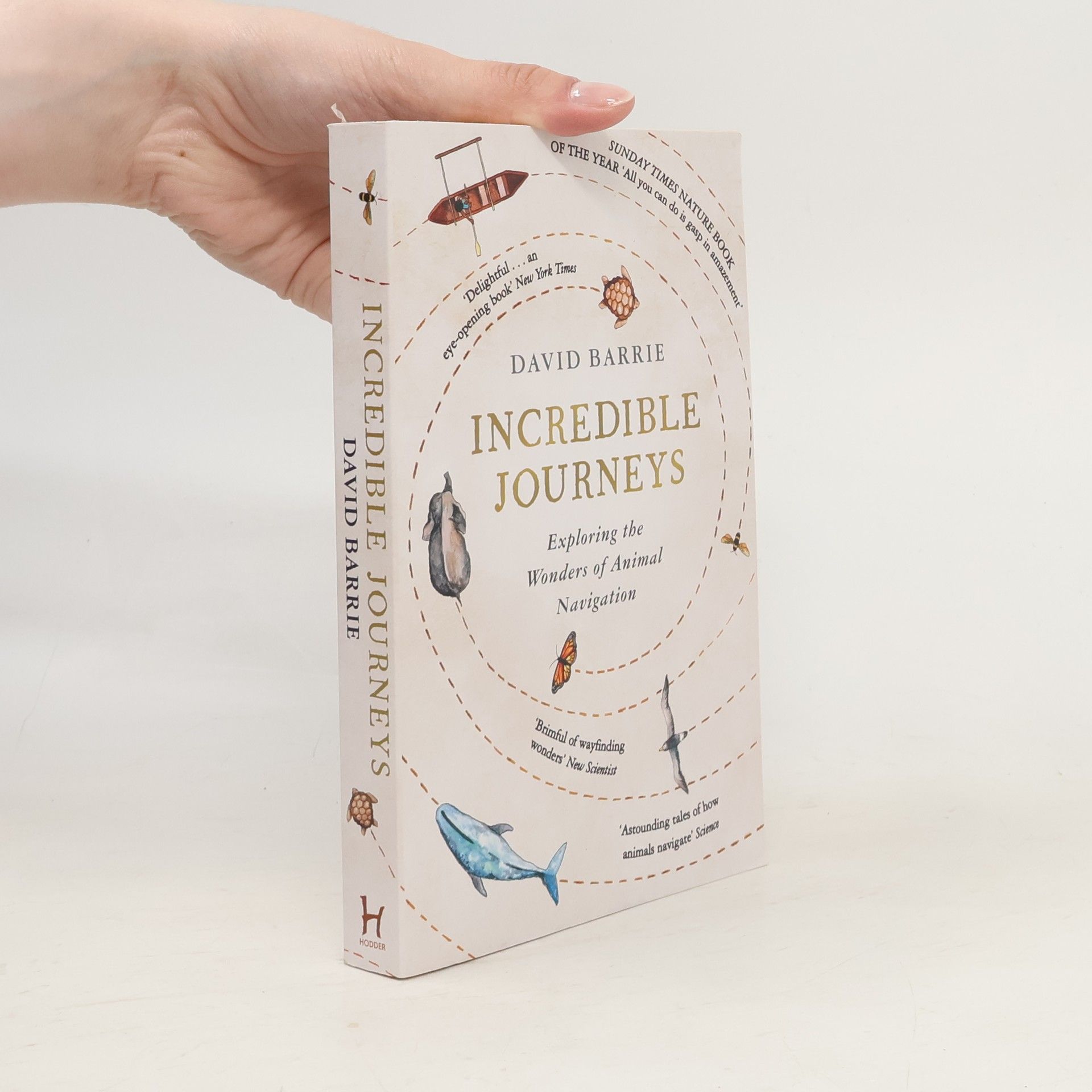A book about animal navigation - how creatures, great and small, find their way and how brilliantly they manage without benefit of maps or instruments - and what lessons there are for human beings.
David Barrie Books
This author explores the captivating realm of animal navigation, driven by a lifelong fascination with these abilities and a personal connection to traditional seafaring arts. His work delves into cutting-edge scientific discoveries, posing thought-provoking questions about our own reliance on technology. Through engaging prose, he celebrates a nearly vanished skill set and the brave explorers who once used it to map the world.






Sextant
A Young Man's Daring Sea Voyage and the Men Who Mapped the World's Oceans
- 384 pages
- 14 hours of reading
Focusing on the significance of a crucial navigational instrument, this narrative intertwines stories of invention and exploration. It pays tribute to the brave mariners who utilized this technology to navigate uncharted waters, ultimately shaping the world through their discoveries and conquests. The book captures the drama of their journeys and the impact of their endeavors on maritime history.
In Supernavigators, award-winning author David Barrie takes us on a tour of the cutting-edge science of animal navigation, where scientists are unraveling how creatures as various as butterflies, birds, crustaceans, fish, reptiles, and even people find their way.Weaving interviews with leading experts on animal behavior with the groundbreaking discoveries of Nobel Prize–winning neuroscientists, Barrie introduces astounding animals of every stripe: Dung beetles that steer by the light of the Milky Way. Ants and bees that navigate using patterns of light invisible to humans. Sea turtles, spiny lobsters, and moths that find their way using Earth’s magnetic field. Salmon that return to their birthplace by following their noses. Baleen whales that swim thousands of miles while holding a rock-steady course, and birds that can locate their nests on a tiny island after crisscrossing an ocean.There’s a stunning diversity of animal navigators out there, often using senses and skills we humans don’t have access to ourselves. For the first time, Supernavigators reveals these wonders in a whole new light.
David Barrie erkundet die beeindruckenden Navigationsfähigkeiten von Tieren wie Fischen, Vögeln und Meeressäugern. Er verbindet neueste wissenschaftliche Erkenntnisse mit faszinierenden Anekdoten über ihre Reisen und Sinne, die uns Menschen oft unerreichbar erscheinen, besonders wenn unser Navi versagt.
Przyrodnicza książka roku 2019 według Sunday Times przybliża fascynujący świat nawigacji zwierząt, od nocnych żuków toczących kulki nawozu, po żółwie morskie i langusty, które korzystają z pola magnetycznego Ziemi. Autor, David Barrie, bada, jak różne stworzenia, w tym ludzie, orientują się w przestrzeni. W rozmowach z naukowcami oraz odwołaniach do odkryć noblistów w dziedzinie neuronauki, ukazuje niezwykłe zdolności zwierząt. Książka odkrywa cuda zwierzęcej nawigacji, pomagając zrozumieć złożoność i piękno natury. Dowiadujemy się, że mrówki nie tylko kierują się słońcem, ale również korzystają z wewnętrznego zegara i mechanizmu liczenia kroków. Motyle przelatują tysiące kilometrów, używając skomplikowanego kompasu słonecznego. Barrie zachęca do refleksji nad tym, jak wiele z nas zatraciło umiejętność uważnego obserwowania otoczenia. Jego porywające pisarstwo, pełne ducha przygody, sprawia, że lektura staje się pasjonującą podróżą. Autor, brytyjski pisarz z bogatym życiorysem, zdobył złotą nagrodę Nautulusa w 2019 roku.